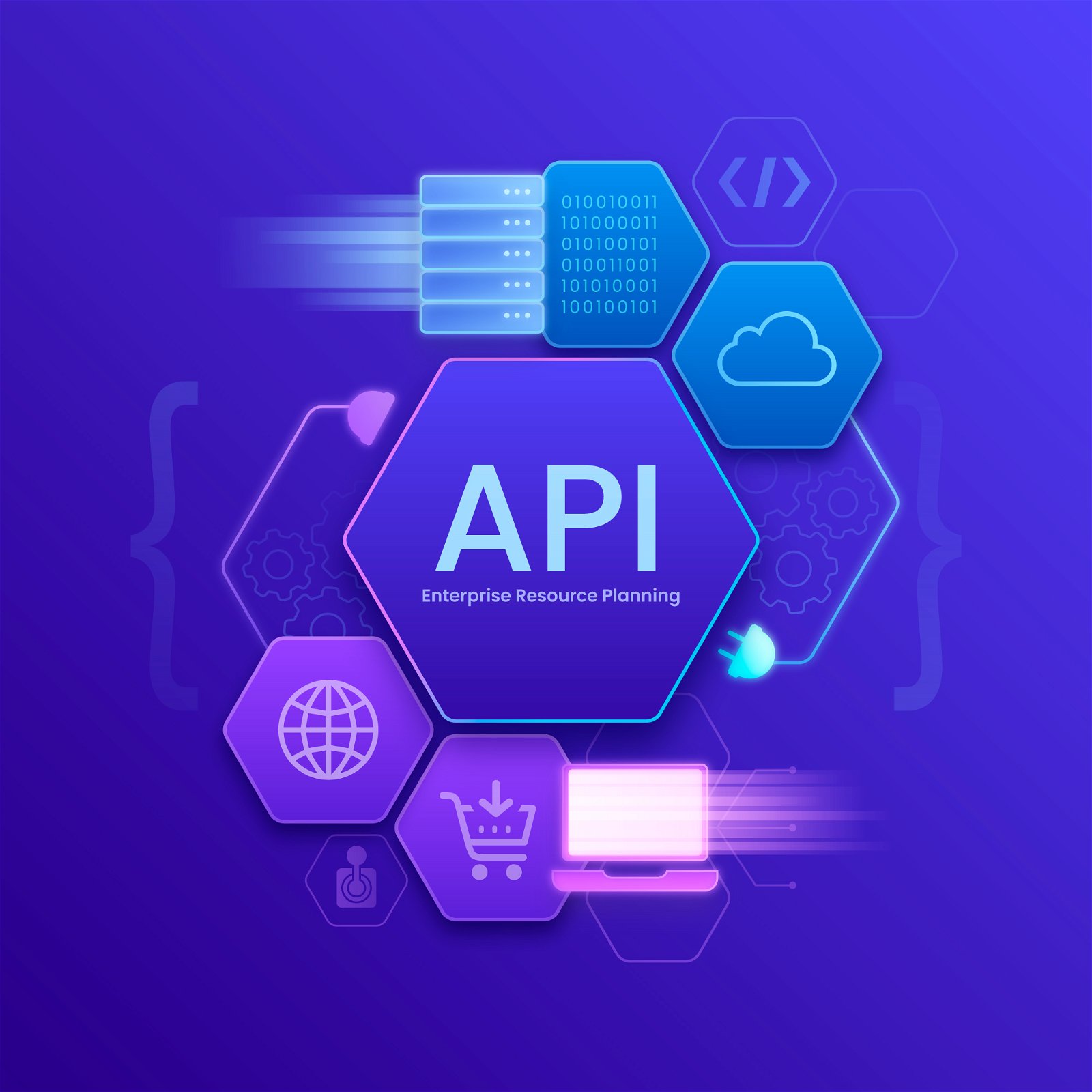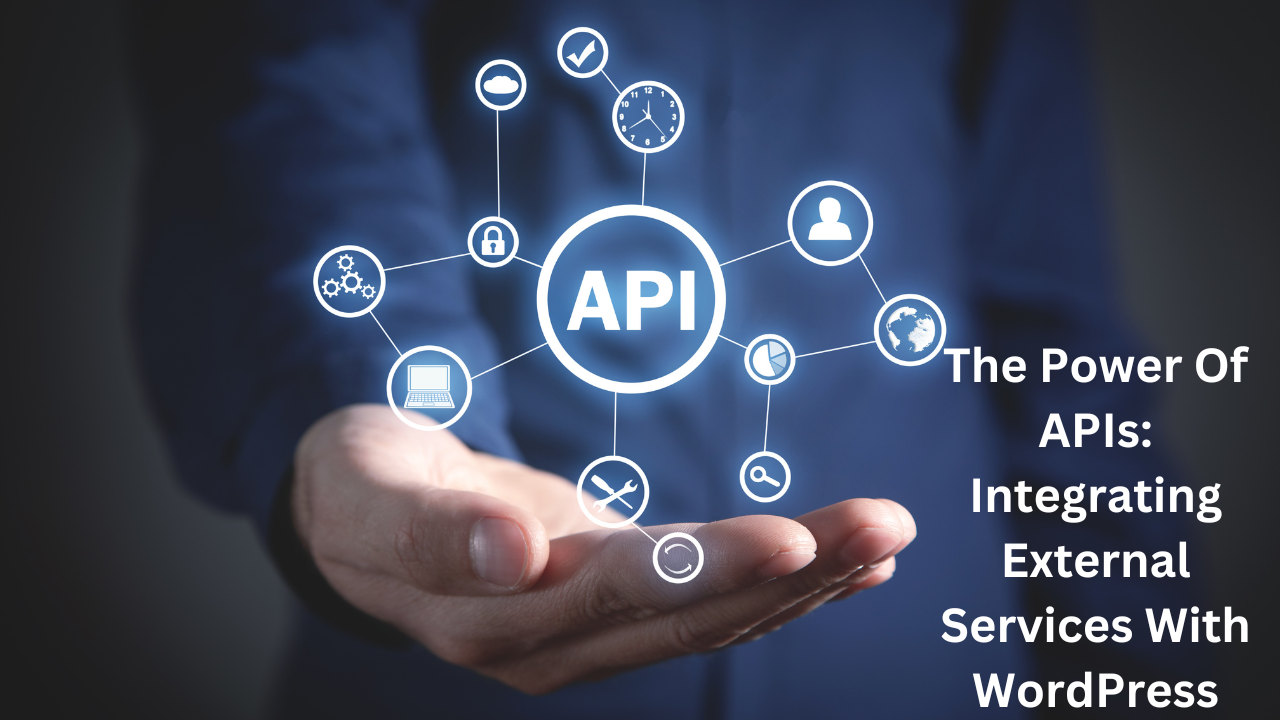Incorporating external resources is emerging as a significant driver in determining the capacity of internet platforms in a time where online ecosystems live on connectivity and cooperation. WordPress is leading the way in this transformation. It has progressed from a basic blogging tool into a robust content management system (CMS) that heavily depends on APIs. Through the assistance of these technological links, WordPress has transformed into a versatile center that can effortlessly interact with a diverse array of other services.
APIs allow programmers to go beyond conventional limits by accessing various features, from online shopping and networking sites to analyzing data. When we delve into the complex web of WordPress API integration, we open up a world of infinite possibilities that improve user experiences, encourage creativity, and further establish WordPress as a cornerstone of the contemporary web.
Table of Contents
ToggleUnderstanding APIs: Exposing The Idea

Application Programming Interfaces (APIs) are crucial in today’s complex technological landscape. They allow various programs to talk to one another without hiccups. By providing a standardized interface to the features of third-party services, APIs help developers take advantage of such services without fully understanding their inner workings. To put it another way, APIs facilitate communication between various computer programs. It makes it possible for people to cooperate reasonably despite their differences.
APIs provide a whole new universe of possibilities for a Digital Marketing Company. They make it possible to easily incorporate functionality that would otherwise need much coding and development work. APIs simplify integrating third-party services, such as Google Maps for location services, social media for collaboration and authentication, and e-commerce platforms.
1. WordPress And The API Economy
The notion of the API economy has evolved as a revolutionary force in the ever-evolving digital ecosystem. It is altering the interaction between software applications and services. WordPress started as a primary blogging platform but has become a powerful content management system (CMS). It now powers over 40% of the internet and is at the forefront of this technological transformation.
The API economy is, at its heart, a radical departure from traditional methods of doing business in the software and service industries. APIs, or Application Programming Interfaces, facilitate interactions between various programs. They make sharing information and features between platforms possible, making them more like cooperatively operating parts.
WordPress has fully committed to this paradigm shift. The platform’s main functionalities have been extensible via a plugin architecture for a long time. On the other hand, APIs expand upon this functionality by letting other services seamlessly integrate into WordPress websites. You may include everything from interactive maps, and social network feeds to payment processors and e-commerce features.
The digital synergy that has resulted from the union of WordPress and the interconnection of the API economy has enabled rapid expansion. Companies can improve efficiency and customer satisfaction by using existing specialized services rather than developing them in-house. WordPress has become a robust content management system (CMS) by integrating APIs. It can become a key player in the rapidly growing API market.
2. The Power Of Integration- The Power Of APIs
Picture yourself using WordPress to manage an online store. While WordPress does have a few rudimentary e-commerce functions, a more robust set of tools is available through API integration with a specialist e-commerce service. All online shops need secure payment processing, an effective inventory management system, and reliable delivery services. Integrating proven services into your WordPress site using an API saves you the trouble of starting from scratch.
You can incorporate Shopify’s e-commerce functionalities into your WordPress website by utilizing the Shopify API. You can employ WordPress as a platform for managing content. It can do it all while relying on Shopify to oversee products, monitor orders, and handle transactions.
Also Read: How To Use Google Indexing API To Get Your Jobs Listed By Google Jobs
3. Improvements To The User Interface- The Power Of APIs
WordPress sites may improve users’ experience by integrating third-party services more effectively via APIs. Take, for example, a travel blog that plans to use interactive maps to document the author’s excursions. WordPress sites may utilize the Google Maps API as an alternative to hand-drawn static maps. With this addition, the blog could provide clickable maps with markers, routes, and Google Street View footage.
APIs are crucial in the world of social media integration. WordPress websites may automatically display the most recent posts or tweets from social networking networks like Facebook, Twitter, and Instagram. It has two purposes: it keeps the website’s material current and gets people talking to each other.
Also Read: Make WordPress Website SEO Friendly
4. API Integration With WordPress Offers A World Of Possibilities
The flexibility of APIs is one of their greatest strengths. Every conceivable service or feature has an accompanying application programming interface. APIs allow WordPress to become a center of innovation in fields as diverse as meteorology, linguistics, AI, and machine learning. For instance, including a translation API may make your material available to a worldwide audience without work.
The use of APIs also encourages cooperation across disparate systems. WordPress membership sites may easily accept subscription payments by integrating APIs from services like PayPal and Stripe. By working together, you won’t have to waste time switching between programs, which will boost productivity.
Also Read: How WordPress Became a Multi-Billion Dollar Economy
5. Obstacles And Considerations- The Power Of APIs
There are numerous benefits to utilizing APIs, but they also come with disadvantages. When incorporating external services, prioritizing security is essential. Since APIs sometimes need the transfer of private information, protecting the confidentiality of API communications is of the utmost importance. Regular updates and maintenance are required to remain compatible with the external service’s API modifications. Using a lot of third-party APIs might also reduce speed if they aren’t optimized for it.
Conclusion on The Power Of APIs
Because of APIs, WordPress has evolved from a simple blogging platform into a flexible, dynamic, and potent content management system. With APIs, WordPress sites can easily add advanced features like e-commerce, payment processing, dynamic mapping, and social network sharing. Because APIs will only get more potent as time passes, WordPress will remain an integral part of the online development ecosystem. To embrace application programming interfaces is to enter a new era of digital interconnection, not merely to improve a website’s functionality.
Interesting Reads:
Is WooCommerce Safe? A Guide to WooCommerce Security
Its High Time To Change Old Powerpoint: Morden Software For Presentation








